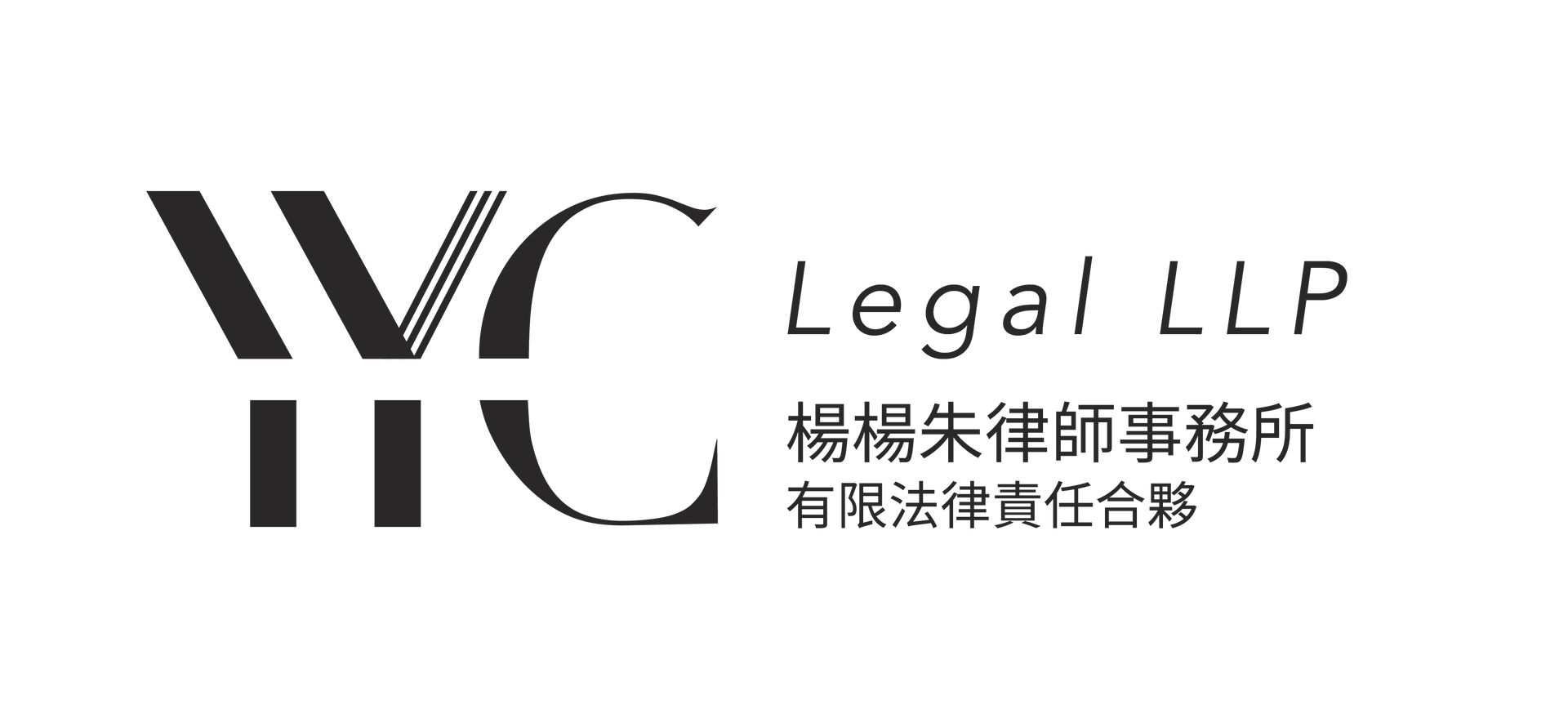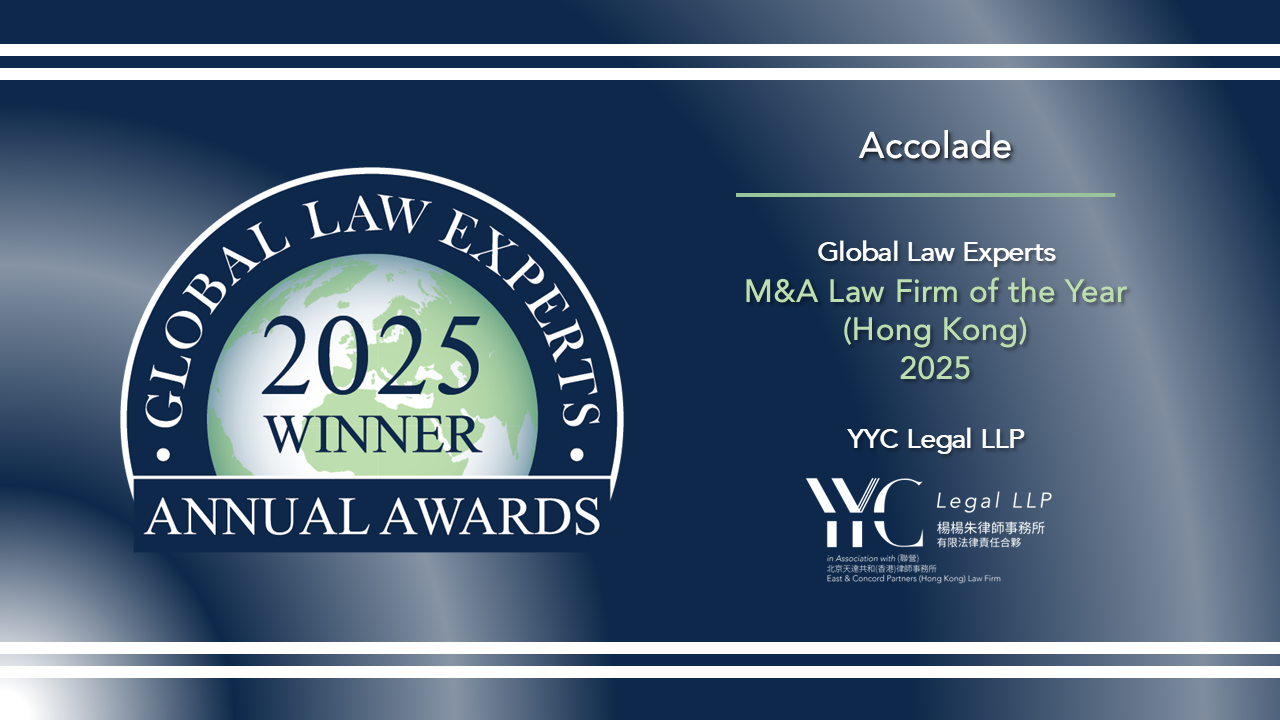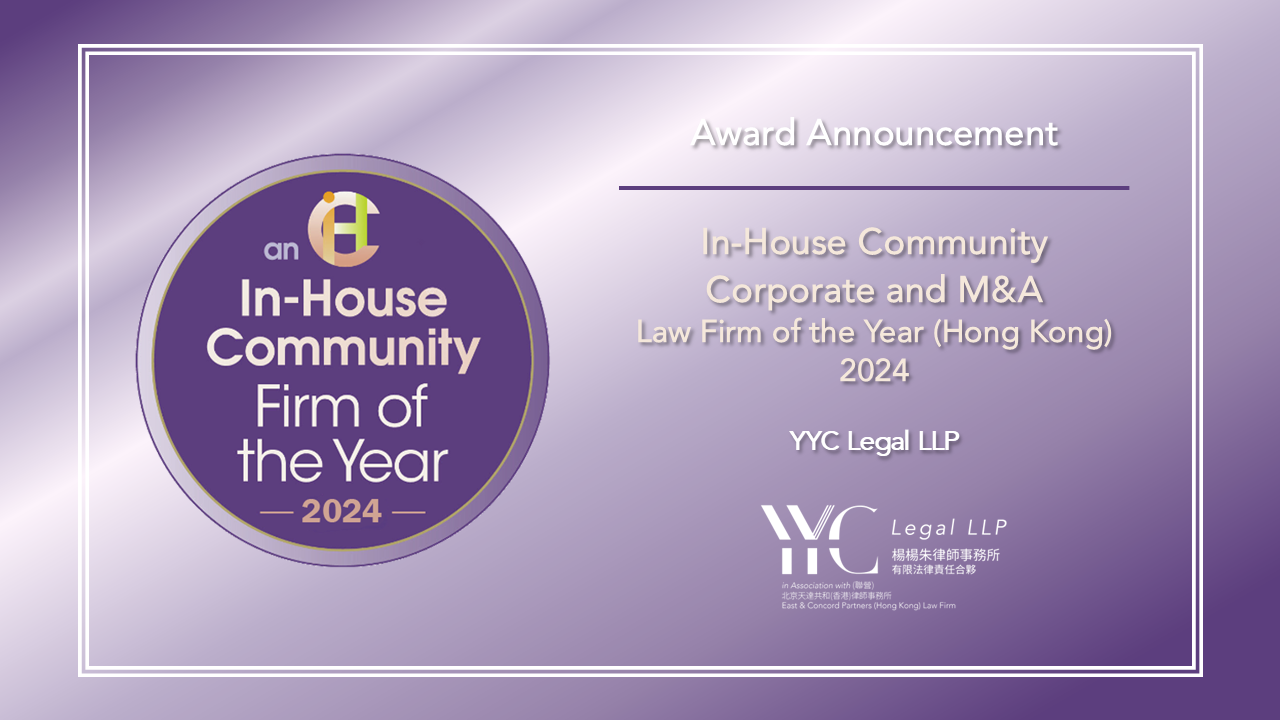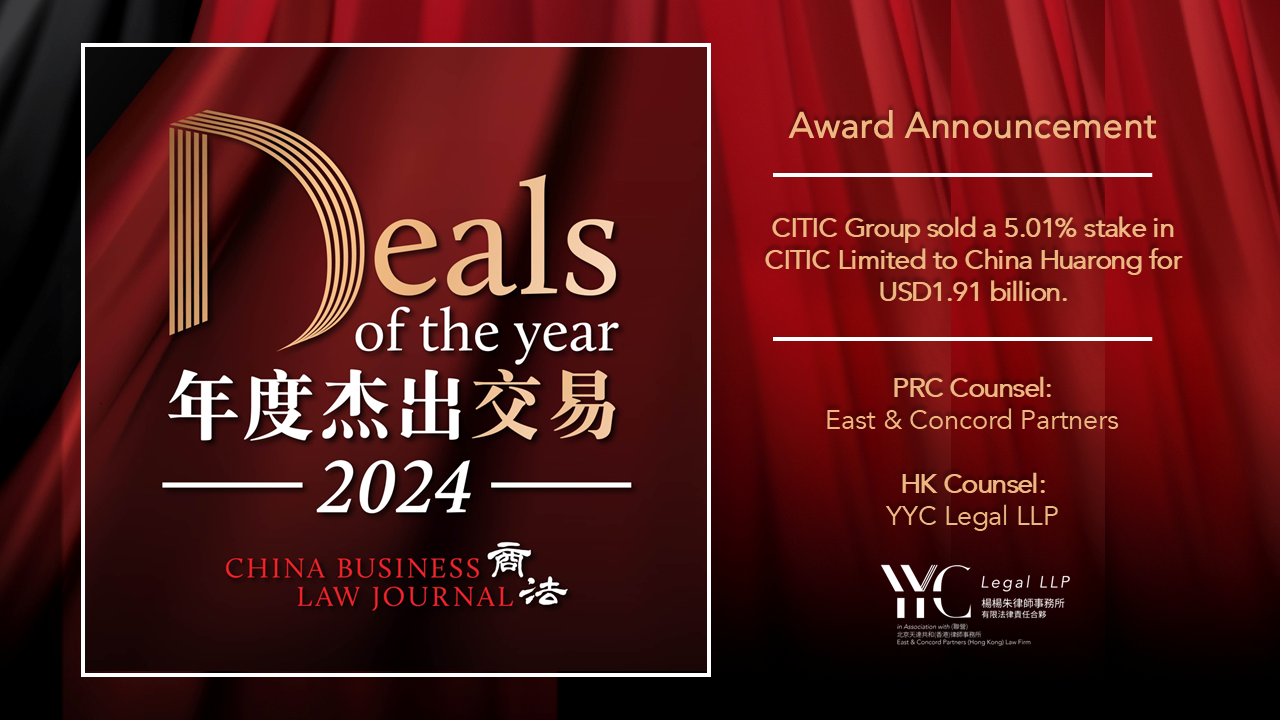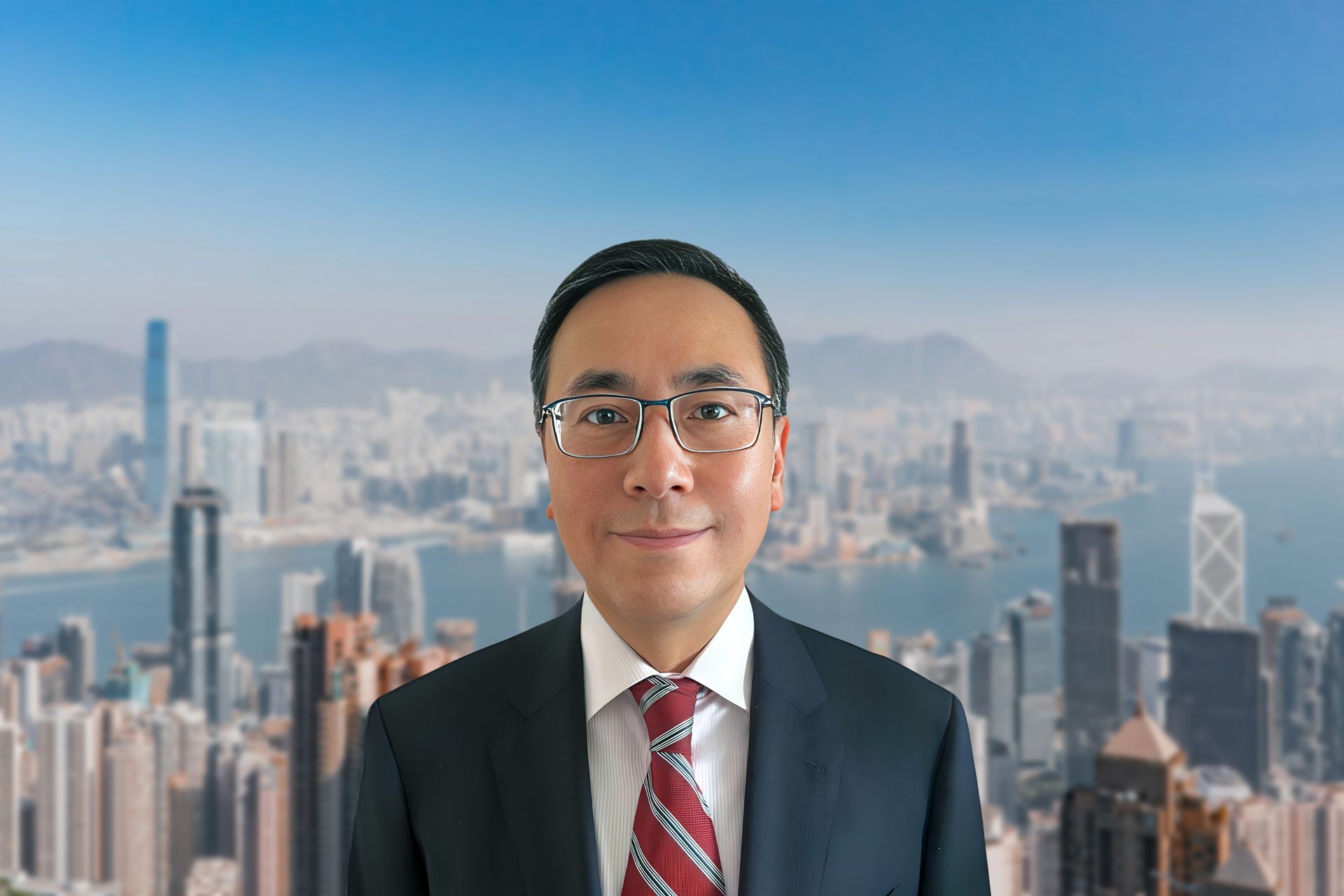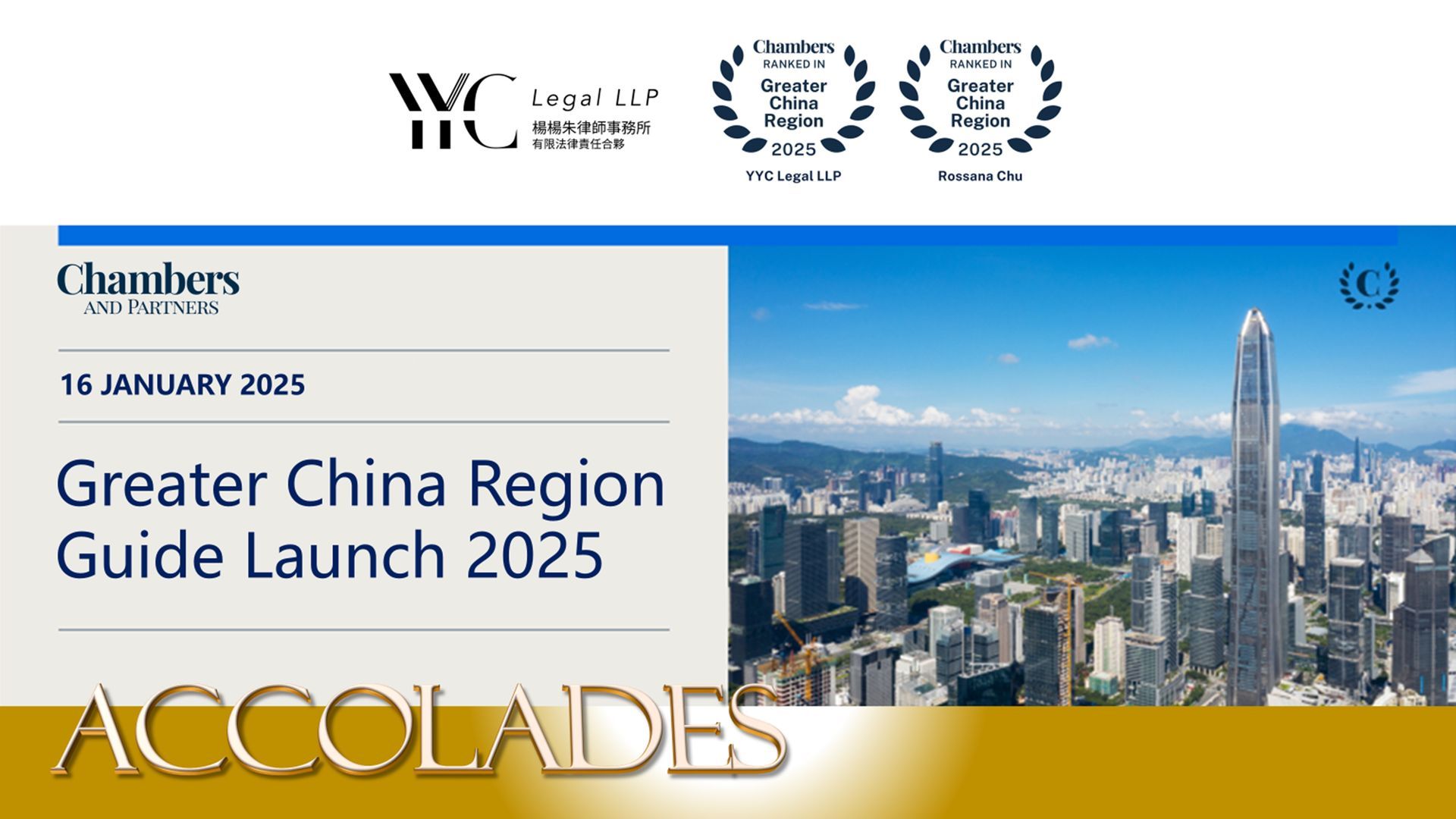Lexology In-Depth: International Capital Markets - Hong Kong, Edition 13
Lexology In-Depth: International Capital Markets - Hong Kong, Edition 13
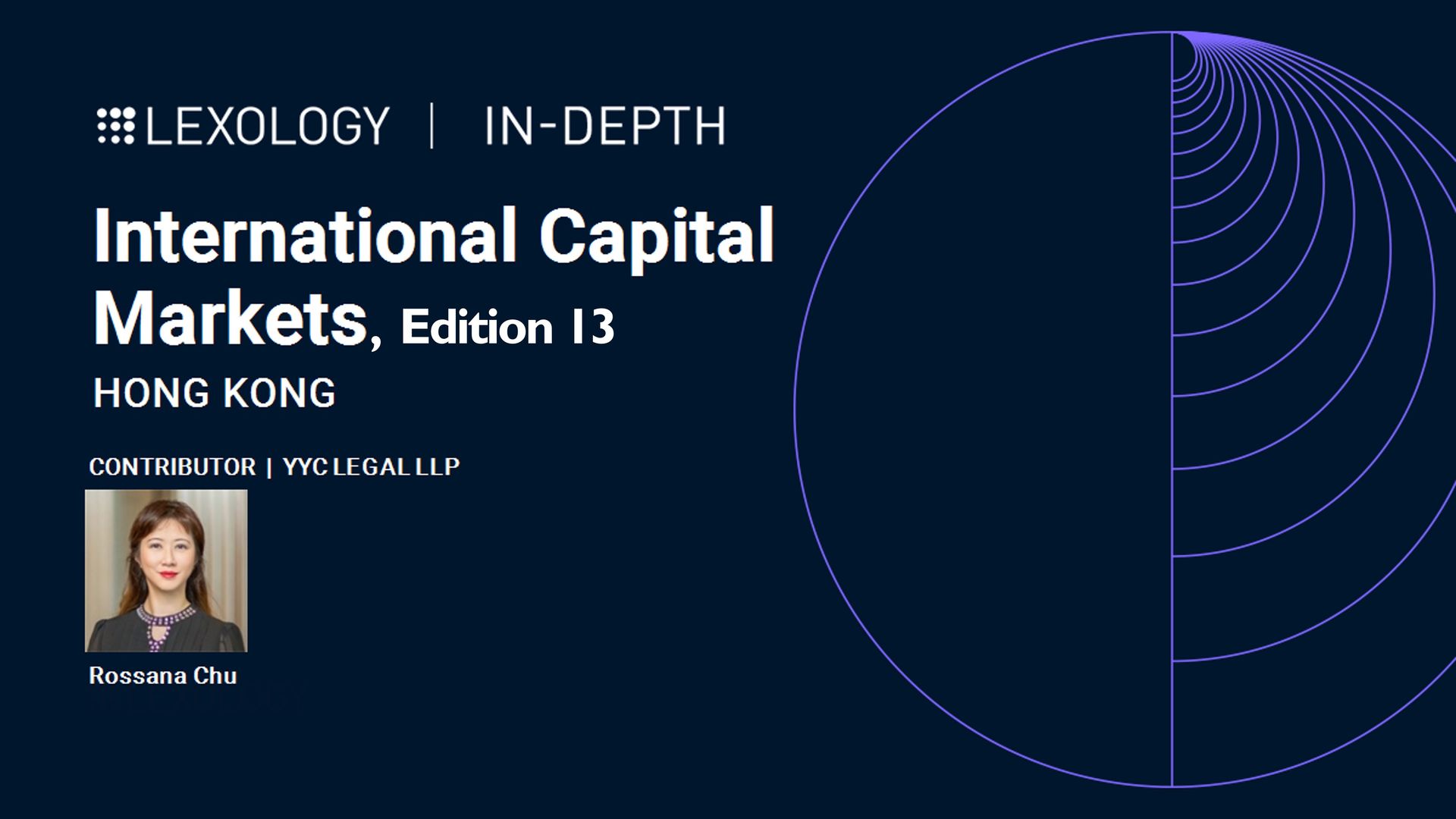
We are delighted to share our partner Rossana Chu’s contribution to Lexology In-Depth: International Capital Markets, Edition 13, Hong Kong Chapter published on 12 December 2023.
In-Depth: International Capital Markets (formerly The International Capital Markets Review) is an incisive overview of the legal and regulatory frameworks governing the capital markets in major jurisdictions worldwide. It offers practical guidance on a range of key issues, including the regulators’ recent enforcement activities, prospectus requirements and other mandatory disclosures, tax considerations and much more.
Introduction
Hong Kong is one of the most important international capital markets in the world. As of 30 December 2022, 2,597 companies were listed in the city with a total market capitalisation of HK$35,666 billion. The size of funds raised by initial public offerings (IPOs) in Hong Kong was US$12.7 billion in 2022, ranking fourth place in the world for that year. The 2022 total turnover of the Hong Kong securities markets reached HK$30,727 billion, while the turnover of securitised derivatives hit the US$469.6 billion mark for the first 11 months of 2022.[2]
The city attracts funds from all over the world. In addition, the Shanghai-Hong Kong Stock Connect and the Shenzhen-Hong Kong Stock Connect (Stock Connect) offer a mutual market access mechanism through which investors in Mainland China and Hong Kong can trade and settle shares listed on the other market via the stock exchanges and clearing houses in their home market.
The capital markets are mainly regulated by the Securities and Futures Commission of Hong Kong (SFC) which is an independent statutory body responsible for safeguarding market integrity, enforcing securities and futures market legislation and providing protection for the investing public in respect of financial products.
The Hong Kong Exchanges and Clearing Limited (HKEX) is the operator of Hong Kong's central securities and derivatives marketplace and the front-line regulator of listed issuers. HKEX and its subsidiaries (including the stock and futures exchanges and associated clearing houses) also administer listing, trading and clearing rules, and provide exchanges, clearing, settlement and depository services.
Despite the challenges arising from covid-19 in recent years, Hong Kong has been putting a lot of effort into maintaining its competitiveness as an international financial centre in terms of listing qualifications, product diversification, environmental, social and corporate governance (ESG), connectivity with Mainland China and market regulations.
Year in review
Developments affecting debt and equity offerings
Increased profit requirement
The most debated proposal made by HKEX in recent years was the increase in profit requirement for companies applying to be listed on the Main Board of the Hong Kong Stock Exchange.
In November 2020, HKEX proposed a substantial increase in the profit requirement, up to three times the then-existing profit thresholds. However, due to the adverse effects of covid-19 on Hong Kong at that time, the proposal was met with negative responses and opposition from 83 per cent of respondents.[3]
In the end, the profit requirement was increased by an aggregate of 60 per cent, that is, from HK$20 million to HK$35 million for the last financial year in the three-year track record and from HK$30 million to HK$45 million for the two preceding years, effective from 1 January 2022.
Special purpose acquisition companies
Following the popularity of special purpose acquisition companies (SPACs) in most international capital markets, HKEX introduced rules for SPACs and successor companies to be listed on the Main Board of the Hong Kong Stock Exchange in January 2022.[4]
A SPAC is a type of listing vehicle that has no substantial business operations or assets. Its primary objective is to raise capital through an IPO in order to facilitate the acquisition or merger of a target company within a specified time frame. Upon completion of the acquisition or merger, the SPAC and the target company will be combined, resulting in the listing of a successor company. Such process is commonly referred to as a 'De-SPAC transaction'.
The minimum amount of funds to be raised by a SPAC through its Hong Kong IPO is HK$1 billion. Only professional investors are permitted to subscribe for and engage in post-IPO trading of SPAC shares and warrants.
Each SPAC is required to complete the De-SPAC transaction within 36 months of its listing, although it may request an extension of up to six months with the approval of its shareholders. The target of a De-SPAC transaction must meet all new listing requirements of the Main Board, including the appointment of an IPO sponsor, due diligence requirements, financial eligibility tests and minimum market capitalisation requirements. HKEX makes it very clear that it will treat each listing application of a successor company as a deemed new listing.
Specialist technology companies
HKEX introduced in March 2023 a new regime for specialist technology companies to be listed on the Main Board of the Hong Kong Stock Exchange,[5] even if those companies do not satisfy the usual profits, revenue and cash flow listing criteria.[6] This represents a further advancement following the implementation of rules in 2018 that permitted biotech companies to be listed on the Main Board even when they do not meet the standard eligibility criteria.[7] In addition, starting from 2018, companies with weighted voting rights structures are allowed to be listed in Hong Kong,[8] and a concessionary route to secondary listing was established for overseas issuers already listed on a qualifying exchange[9]. All these measures demonstrate HKEX's continued commitment to fostering growth of the equity capital market and facilitating the diversification of companies listed in Hong Kong.
The new regime is open to technology companies engaging in acceptable industries. Up to the end of August 2023, those industries are next-generation information technology, advanced hardware and software, advanced materials, new energy and environmental protection, as well as new food and agriculture technologies. A listing applicant falling outside the list may still be considered if:
- it has high growth potential;
- its success can be demonstrated to be attributable to the application of new technology to a new business model that differentiates it from traditional market participants serving similar consumers or end users; and
- its research and development (R&D) significantly contributes to its expected value and constitutes a major activity and expense.
There are two types of specialist technology companies, namely, a commercial company that has commercialised its technology products with revenue of at least HK$250 million for the most recent audited financial year, and a pre-commercial company that has not met such revenue threshold. The minimum market capitalisation of a commercial company and a pre-commercial company is HK$6 billion and HK$10 billion, respectively.
The R&D expenditure of a commercial company should constitute at least 15 per cent of its total operating expenditure. The percentage for a pre-commercial company is 50 per cent if its revenue is less than HK$150 million for its most recent financial year and 30 per cent if its revenue for its most recent financial year reaches HK$150 million. The applicant must meet the applicable R&D expenditure percentage threshold on a yearly basis for at least two out of the three financial years prior to listing, and on an aggregate basis over all the three financial years prior to listing.
A pre-commercial company must also disclose in its listing document a credible path to the commercialisation of its specialist technology product or products, and ensure that it has available sufficient working capital to cover at least 125 per cent of its group's costs for at least 12 months from the publication of its listing document after taking into account the IPO proceeds.
The listing applicant is expected to have received investments from sophisticated independent investors.
One notable feature of this regime is that certain expectations (such as the list of acceptable industries, expected investments from sophisticated independent investors, liquidity arrangements for applicants listed on another stock exchange and listing document disclosure requirements) are outlined in HKEX's guidance[10] rather than being explicitly stated in the Listing Rules. This represents a departure from the standard listing qualifications and provides flexibility for HKEX to adjust listing requirements so as to catch up with the changes in technology industries.
Sustainable finance products
Developing as a sustainable finance products hub is another important objective of HKEX. Out of the global sustainability, green, social, transition or sustainability-linked bond issuance of US$863.4 billion in 2022,[11] US$29.2 billion was raised by sustainability, green, social, transition or sustainability-linked bonds listed in Hong Kong,[12] which were denominated in different currencies including Hong Kong dollars, renminbi, US dollars and the euro.
As at the end of August 2023, there were 126 bonds shown on the Sustainable & Green Exchange (STAGE) portal of HKEX as sustainable finance products, out of which 101 are green bonds. The other categories are five social, five sustainability, four sustainability-linked, one covid, four blue and six transition bonds.[13]
Out of the 101 green bonds or bond programmes listed in Hong Kong, 38 were issued by financial institutions, mostly banks, and the proceeds used for financing or refinancing, or both, 'eligible' green assets or projects such as energy conservation and efficiency, renewable energy, green buildings, clean transportation, pollution control, and environmentally sustainable management of living natural resources and land use. Corporate issuers of 44 green bonds included property developers and public utilities companies as they are identified as consuming high amounts of energy and are more motivated to enhance their green efforts. Notably, 18 green bonds were issued by the Hong Kong government.
The intended uses of proceeds of the five social bonds included social projects such as affordable basic drinking water, sanitation and transport infrastructure, access to essential health and education services, and affordable housing.
Three out of the five sustainability bonds were issued by a bank and the other two were issued by the government of China.
Among the four sustainability-linked bonds, one was issued by a Hong Kong-based property developer that set a target percentage of utilising renewable energy in its rental properties located in the Greater Bay Area of China. If such target cannot be achieved by a certain deadline, the issuer group will make a purchase of carbon offsets equivalent to a percentage increase in the coupon of the bond until it is fully redeemed. One sustainability-linked bond was issued by a manufacturer of optical components that has set decarbonisation targets as its sustainability commitments.
Blue bonds were issued by the provincial and municipal governments of China and banks for projects with marine or ocean-based benefits.
Transition bonds provide financing for high carbon sectors to transition away from fossil fuels. The issuers of Hong Kong listed transition bonds included a power company and banks.
Hong Kong government green bond programme
Under the government green bond programme launched in 2019, the government has been issuing bonds locally. The proceeds are used exclusively to finance or refinance public works projects of the government in eight eligible categories, namely renewable energy, energy efficiency and conservation, pollution prevention and control, waste management and resource recovery, water and wastewater management, nature conservation and biodiversity, clean transportation and green buildings. Bonds issued under this programme included the Hong Kong government green bonds listed on HKEX, as mentioned above.
Up to the end of January 2023, the programme raised funds close to an aggregate of US$22 billion, out of which 89 per cent was from institutional investors and the remaining 11 per cent was from an issue to retail investors in May 2022.[14] The second retail issue was scheduled in October 2023.
Tokenised green bond
One remarkable breakthrough achieved by Hong Kong was the first tokenised green bond issued by the Hong Kong government in February 2023, which was also the world's first tokenised green bond issued by a government.[15] It paves the way for future tokenisation of financial products.
The HK$800 million tokenised green bond carries a coupon rate of 4.05 per cent per annum and is due in 2024. It was issued using distributed ledger technology that brings the bond and relevant activities onto a single digital platform, making possible end-to-end automation and substantially reducing transaction times and costs. Not only was the primary issuance settled on a delivery-versus-payment basis, but the full lifecycle process is also tokenised. Settlement of secondary trading, coupon payment, all the way to maturity redemption will be performed in a digitalised way using self-executing smart contracts. The on-chain records on the private blockchain network will be the legally definitive and final records of ownership of the securities tokens and cash tokens for the parties on the platform.
In this green bond, the payment is also tokenised. HK$ cash tokens, minted by the Hong Kong Monetary Authority (HKMA) in exchange for fiat cash, are used in the bond settlement, coupon payment and final redemption. The issuance and redemption of the cash tokens are built on a similar mechanism adopted by the HKMA in the cross-border central bank digital currencies payment platform called mBridge, on which HKMA partners with the Bank for International Settlements Innovation Hub and the central banks of Mainland China, Thailand and the United Arab Emirates.[16]
Hong Kong government silver bonds series
2023 broke the record in terms of silver bonds issuance scale. The silver bonds series is designed to offer stable returns on investments for senior residents of Hong Kong aged 65 and above. This initiative also serves as a model for local financial institutions to tap into the 'silver market' by introducing a broader range of products suitable for senior citizens.
The government conducted eight issuances of silver bonds from 2016 to 2023, with one issuance each year.[17] Each bond has a term of three years. The interest rate is the higher of a fixed rate and a floating rate that is the arithmetic average of the year-on-year rates of change in the local composite consumer price index compiled by the government. That essentially means that the minimum interest rate is the fixed rate, which was escalated gradually from 2 per cent per annum for the bonds issued in 2016 and 2017 to 5 per cent per annum for the bonds issued in 2023.
The issue scale also increased from HK$3 billion in 2016 to HK$55 billion in 2023, indicating its growing popularity among golden agers.
New bookbuilding and placing requirements
In August 2022, new requirements took effect on bookbuilding, marketing and distribution of securities in both debt and share offerings including IPOs and secondary market placing of listed shares.
The SFC noted the earlier concerns over increasing behaviours that might not be in line with maintaining a healthy capital market. For example, some firms marketed securities to investors without a mandate from the securities issuer and subsequently convinced the issuer to accept them as syndicate members. In other cases, the issuers provided fee incentives at a late stage, bringing about last-minute scrambles for orders and fees.[18]
The new requirements are reflected in the amendments to the Code of Conduct for Persons Licensed by or Registered with the Securities and Futures Commission (Code).
The role of overall coordinator (OC) is introduced in the amended Code as a syndicate capital market intermediary (CMI), which conducts the overall management of the offering, coordinating the bookbuilding and placing activities, advising the issuer on the offer price and exercising discretion in share reallocation and over-allotment options. Each syndicate CMI (including an OC) should be appointed by the issuer under a written agreement (including the fixed fee payable to the CMI and a payment schedule) before the CMI may conduct any bookbuilding or placing activities. The OC is to provide guidance to the issuer about the market's fee split practice. In a Main Board IPO, the issuer should appoint at least one OC, where such OC (or its group company) acts as an independent sponsor of the IPO, at least two months before submitting the listing application for the IPO.
When placing orders, a CMI should provide to the OC the name and a unique identification number (e.g., identity card number) of each investor for orders placed on an omnibus basis and the identities of all other investors in order to ensure transparency in the bookbuilding process and assist in eliminating duplicate orders.
Share and debt securities should be allocated on a fair basis. Priority should always be given to satisfying investor clients' orders over the CMIs' own proprietary orders (including orders placed for funds and portfolios in which the CMI or its group member has a substantial interest).
Developments affecting derivatives, securitisations and other structured products
HKEX has been developing and enhancing its capabilities in respect of derivatives and structured products.[19]
Hong Kong has the most extensive and vibrant offshore A-share derivatives ecosystem in the world, demonstrated by robust volumes in the MSCI China A 50 Connect Index Futures contracts and the US dollar/offshore renminbi futures in 2022. The first MSCI China A 50 Connect Index derivative warrants were listed in August 2022, providing additional tools for investors to manage their Chinese exposure.
HKEX also launched its Hang Seng TECH Index Futures Options in November 2022, alongside further enhancements to its existing Hang Seng TECH Index derivatives products.
The introduction in May 2022 of derivatives holiday trading allows trading of non-Hong Kong dollar products during Hong Kong holidays when the markets of their underlying securities may be open.
HKEX included for the first time ETFs in Stock Connect in July 2022.
Under the Swap Connect launched in May 2023, investors can participate in the interest rate swap market in Mainland China and trade and clear onshore renminbi interest rate swaps without changing their existing trading and settlement practices and without having to open onshore accounts in Mainland China.
Cases and dispute settlement
Proposed amendments to statutory provisions on insider dealing
The scope of insider dealing provisions of the Securities and Futures Ordinance (SFO)[20] will be expanded to cover insider dealing perpetrated in Hong Kong with respect to overseas-listed securities or their derivatives, and insider dealing perpetrated outside of Hong Kong if it involves Hong Kong-listed securities or their derivatives.
Currently, the SFO sets out civil and criminal regimes in respect of insider dealing with respect to Hong Kong-listed securities or their derivatives, and securities dually-listed in Hong Kong and another jurisdiction or their derivatives. They do not apply to insider dealing perpetrated in Hong Kong with respect to securities listed on overseas stock markets. The SFO also does not expressly apply to insider dealing perpetrated outside Hong Kong in respect of Hong Kong-listed securities or their derivatives. Nevertheless, from the SFC's statistics, approximately 61 per cent of the insider dealing cases handled by the SFC between 2017 and 2021 concerned insider dealing perpetrated outside Hong Kong in respect of Hong Kong-listed securities or their derivatives.[21]
The SFC announced in August 2023 that, after considering responses to its June 2022 consultation paper, the proposed expansion of scope of insider dealing regime will be proceeded with in order to tackle cross-border securities crimes and market misconduct, and preserve the integrity and reputation of Hong Kong's financial markets.[22]
In respect of insider dealing involving overseas-listed securities or their derivatives, the amended provisions will stipulate that such misconduct would also need to be unlawful in the relevant overseas jurisdiction. One example of the impact is that the amended regime would apply to over-the-counter transactions in overseas-listed debt securities, as it currently applies to over-the-counter transactions in Hong Kong-listed debt securities, unless one of the statutory defences applies.
Where any licensed or registered corporation becomes aware of any suspected insider dealing of overseas-listed securities conducted in Hong Kong by any person, it is required to report the incident to the SFC.
Keepwell deeds
In offshore bonds issued by a Mainland China-based enterprise or its offshore subsidiaries, it is not uncommon for the onshore ultimate parent in the Mainland to issue a keepwell deed in favour of the trustee that acts on behalf of the bond investors. Unlike a guarantee, such deed does not explicitly require the parent to fulfil the bond payment obligations if the issuer and guarantor fail to do so. Typically, the parent undertakes in the deed to cause the issuer (and the guarantor where applicable) to have sufficient liquidity or net worth, or both, and to maintain its shareholding in the issuer and guarantor. The comfort given is that the parent's promise to keep the issuer and guarantor well, and this is where the description of the deed comes from. One primary reason of giving a keepwell deed is that its nature is normally not subject to the Mainland China regulatory requirements applicable to guarantees.
Two recent Hong Kong cases demonstrate that the Hong Kong court is ready to recognise the contractual rights and obligations in keepwell deeds.
In Nuoxi Capital Limited v. Peking University Founder Group Company Limited,[23] the court held that the disputes in the keepwell deeds should be determined in Hong Kong in accordance with the contractual exclusive jurisdiction clause in the deeds. In that case, the defendant promised to cause the bond issuers and guarantors to have a certain level of net worth and to have sufficient liquidity to ensure timely performance of bond payment obligations under keepwell deeds that were governed by English law and carried exclusive Hong Kong jurisdiction clauses. The issuers and guarantors defaulted on the bonds and the defendant did not fulfil its promises under the keepwell deeds. The onshore administrator of the defendant applied for a stay of actions in Hong Kong so that all debts could be resolved in the reorganisation proceedings in a Beijing court. The Hong Kong court refused to stay the actions, although it recognised the Mainland reorganisation proceedings. The plaintiffs' rights to rely on the exclusive jurisdiction clause was upheld by the court.
In Citicorp International Limited v. Tsinghua Unigroup Co, Ltd,[24] the defendant undertook in a keepwell deed to cause the bond issuer and guarantor to have sufficient liquidity and to cause the guarantor to have a specific amount of consolidated net worth. Subsequently, the defendant went into reorganisation in Mainland China. Following the bond default, the bond trustee submitted a claim in the reorganisation proceeds but such claim was left pending in the proceedings. In the action taken by the trustee against the defendant, the Hong Kong court awarded the trustee an amount consisting of the bond principal, accrued interests and certain trustee costs.
Relevant tax and insolvency laws
Profits tax concessions for investment holding vehicles of single family offices
The Inland Revenue (Amendment) (Tax Concessions for Family-owned Investment Holding Vehicles) Ordinance 2023 came into operation in May 2023, which amended the Inland Revenue Ordinance[25] to provide profits tax concessions for eligible family-owned investment holding vehicles managed by eligible single family offices in Hong Kong and family-owned special purpose entities.
Investment profits generated by those types of vehicles and entities from qualifying transactions can be exempted from profits tax in Hong Kong where specific conditions are met. The exemption applies in respect of a year of assessment commencing on or after 1 April 2022.
This tax concession covers transactions in most financial products such as equities, bonds and funds. It not only helps developing single family offices, but also injects impetus into Hong Kong's capital markets.
Hong Kong court's approach on recognition to foreign liquidators
A liquidator or administrator appointed in a foreign jurisdiction may request recognition and assistance from the Hong Kong court especially when the company's assets are in Hong Kong. The court's approach is particularly noteworthy because most issuers of securities listed and offered in Hong Kong are not Hong Kong incorporated and foreign liquidators are very common for troubled issuers.
In Global Brands Group Holding Limited (in liquidation),[26] a provisional liquidator was appointed by the Bermudian court in respect of Global Brands Group Holding Limited, which was a Bermuda company listed in Hong Kong. The custodians required the provisional liquidator to obtain a recognition order from the Hong Kong court before they would release the company's local assets to the provisional liquidator. In addition to the criterion that the foreign proceedings constitute a collective insolvency process, the court in this case introduced a new element, which is that the foreign proceedings should be conducted in a jurisdiction in which the company's centre of main interests (COMI) is located. Factors to determine a company's COMI include the locations of the company's principal place of business, directors, board meetings, operations, assets, bank accounts, books and records. If the liquidator is not appointed in the COMI of the company but its country of incorporation, then recognition and assistance should be declined unless only limited assistance or 'managerial assistance' is sought or the recognition and assistance sought is a matter of practicality. In this case, the provisional liquidator was appointed in the company's place of incorporation (Bermuda) while its COMI is not in that jurisdiction. However, the recognition was allowed by the court as managerial assistance was sought so that the provisional liquidator could demonstrate that it was the company's lawful agent entitled to direct the funds to be transferred to another bank account. The listing of the company in Hong Kong was eventually cancelled in July 2022.
In Re Guangdong Overseas Construction Corporation,[27] the court confirmed the COMI criterion used in Re Global Brands Group Holding Ltd (in liquidation) in assessing whether or not the Hong Kong court should recognise a foreign liquidation and assist a foreign liquidator.
Role of exchanges, central counterparties and rating agencies
Core Climate as a carbon credits trading platform
Core Climate, an international platform for the trading of carbon credits and climate-related products, was launched by HKEX in late 2022. It marks a further step made by Hong Kong to develop the city as a carbon trading hub as part of the long-term commitment to achieve a low-carbon economy.
Participants are able to source, hold, trade, settle and retire voluntary carbon credits through the Core Climate platform. The carbon credits come from internationally-certified carbon projects from around the world including carbon avoidance, reduction and removal projects. All projects listed on Core Climate are verified against international standards, such as Verra's verified carbon standard.
From the launch until December 2022, approximately 400,000 tonnes of carbon credits coming from China and around the world were traded on this new platform, placing Core Climate among the most active voluntary carbon marketplaces in Asia.[28]
Hong Kong Dollar-Renminbi Dual Counter Model for listed shares
The Hong Kong Dollar-Renminbi Dual Counter Model was launched on the Main Board of the Hong Kong Stock Exchange on 19 June 2023.[29] Hong Kong is again proving itself a global hub for offshore renminbi and is playing an active role in furthering the internationalisation of renminbi by introducing more renminbi-denominated investment products and thus widening the uses of offshore renminbi in the capital markets.
The first batch covers 24 companies that already have their shares listed on the Main Board and traded in HK$. Those companies engage in different industries including technology, finance, properties and consumer products, and their shares are actively traded.
Under the new model, investors have the option to trade shares using their offshore renminbi, which circulates outside of Mainland China, on the renminbi counter. The shares in both counters have the same rights, entitlements, status and par value (if applicable); the only difference is the currency used for trading in each counter. Shares on either counter are fully interchangeable with those of the other counter. A dual counter market making programme has been implemented to provide liquidity for the renminbi counter and minimise price discrepancies between the two counters.
ESG ratings of HKEX-listed issuers
The STAGE portal of HKEX showcases HKEX-listed issuers that have received ESG ratings from at least one of three ESG rating agencies that partner with HKEX, providing additional information to investors on ESG aspects of the issuers. This feature may also encourage companies to strengthen their sustainability endeavours and recognitions. The portal also hyperlinks the individual ESG ratings to their respective profiles at the providers' sites if the profiles are available, providing direct access to further ESG information.[30] The three ratings are as follows:
- HSI/HKQAA ratings are provided by Hang Seng Indexes Company, which appoints Hong Kong Quality Assurance Agency to evaluate the ESG performance of approximately 500 Hong Kong-listed companies. Its ESG rating model is designed to rate a company's management system maturity and risks with regard to sustainability performance. The assessment captures both general and industry-specific criteria covering seven core subjects.
- MSCI ESG ratings are designed to measure a company's resilience to long-term, industry-material ESG risks. A rules-based methodology is used to identify industry leaders and laggards according to their exposure to ESG risks and how well they manage those risks relative to peers.
- S&P ESG ratings are based on information collected in the S&P Global Corporate Sustainability Assessment using a rules-based, industry-specific approach built by investment practitioners to capture the ESG factors expected to have an impact on a company's growth, profitability, capital efficiency and risk exposure.
Other strategic considerations
HKEX announced its three strategic pillars in March 2022 to set out the roadmap to build the 'Marketplace of the Future' and to facilitate the vital two-way capital flows between the East and the West.[31]
The 'connecting China and the world' strategy
Building on its unique strength, HKEX will continue to both bring the China growth story to international investors and help Chinese capital access global opportunities. HKEX's goal is to be the go-to international market for capturing China-related flows and opportunities by expanding and enhancing its 'Connect' programmes, becoming China's go-to offshore risk management centre, solidifying its role as China's preferred offshore fundraising centre, and growing its portfolio of China-related product offerings.
The 'connecting capital with opportunities' strategy
HKEX will connect people, capital, companies and markets to new ideas, focusing on the long-term sustainable development of its business, markets and communities. Through building a more client-centric organisation, HKEX commits to enhancing the attractiveness, depth, vibrancy and diversity of its markets, strengthening its position as a preferred capital-raising, risk management and trading venue of choice.
The 'connecting today with tomorrow' strategy
HKEX is part of a global industry that is rapidly transforming through and being disrupted by such things as digitisation, tokenisation, big data, personalised finance and ESG considerations.
Developing an agile platform business that leverages modern and digitised infrastructure will allow Hong Kong to connect today with tomorrow, supporting its vision for the future. HKEX will modernise its infrastructure, evolve from an infrastructure-led model to a client-led model and develop digital capabilities while exploring new opportunities in digital assets, ESG, private markets and other emerging sectors, and leveraging its data.
Outlook and conclusions
Hong Kong has been implementing forward-looking strategies to strengthen connectivity with Mainland China and the rest of the world and to remain resilient. When China's economic stimulus measures begin to take effect and the global interest rate hike cycle ends, the Hong Kong capital markets will regain vibrance. Nevertheless, geopolitical factors and the ever-changing macro economies will continue to bring challenges to Hong Kong. It is important for the city to keep diversifications in terms of products, investor base, industry segments and market operation models, while keeping itself aligned with worldwide recognised focuses such as ESG, climate change and the further internationalisation of renminbi.
Footnotes:
- Rossana Chu has been advising on capital markets and M&A transactions for more than 26 years and has been a partner in different reputable international law firms.
- 'Market Statistics 2022', Hong Kong Exchanges and Clearing Limited. See https://www.hkex.com.hk/Market-Data/Statistics/Consolidated-Reports/Annual-Market-Statistics?sc_lang=en.
- 'Consultation Conclusions: Main Board Profit Requirement', Hong Kong Exchanges and Clearing Limited, May 2021, page 2.
- Chapter 18B (Special Purpose Acquisition Companies) of the Rules Governing the Listing of Securities on The Stock Exchange of Hong Kong Limited.
- Chapter 18C (Specialist Technology Companies) of the Rules Governing the Listing of Securities on The Stock Exchange of Hong Kong Limited.
- 'Consultation Conclusions: Listing Regime for Specialist Technology Companies', Hong Kong Exchanges and Clearing Limited, March 2023.
- Chapter 18A (Biotech Companies) of the Rules Governing the Listing of Securities on The Stock Exchange of Hong Kong Limited.
- Chapter 8A (Weighted Voting Rights) of the Rules Governing the Listing of Securities on The Stock Exchange of Hong Kong Limited.
- Chapter 19C (Secondary Listings of Overseas Issuers) of the Rules Governing the Listing of Securities on The Stock Exchange of Hong Kong Limited.
- As at the end of August 2023, the effective 'Guidance on Specialist Technology Companies' (Guidance Letter HKEX- GL115-23) was issued by HKEX in March 2023.
- Source: Climate Bonds Initiative as quoted by the official website of the Hong Kong Exchanges and Clearing Limited. See https://www.hkex.com.hk/Join-Our-Market/Sustainable-Finance/HKEX-STAGE/Product-Repository?sc_lang=en.
- Statistics compiled by Hong Kong Exchanges and Clearing Limited. See https://www.hkex.com.hk/Join-Our-Market/Sustainable-Finance/HKEX-STAGE/Product-Repository?sc_lang=en.
- For STAGE portal of HKEX, see https://www.hkex.com.hk/Join-Our-Market/Sustainable-Finance/HKEX-STAGE/Product-Repository?sc_lang=en.
- 'Green Bond Report 2023', Hong Kong Special Administrative Region of the People's Republic of China.
- Press release entitled 'HKSAR Government's Inaugural Tokenised Green Bond Offering', Hong Kong Special Administrative Region of the People's Republic of China, 16 February 2023.
- Article entitled 'Tokenised Bond: Huge Potential to be Unlocked', Eddie Yue, Chief Executive of Hong Kong Monetary Authority, 16 February 2023.
- Refer to the issue circulars set out on the official webpage https://www.hkgb.gov.hk/en/retail/Silver_Issue_Circulars.html.
- 'Consultation Conclusions on (i) the Proposed Code of Conduct on Bookbuilding and Placing Activities in Equity Capital Market and Debt Capital Market Transactions and (ii) the 'Sponsor Coupling' Proposal', Securities and Futures Commission of Hong Kong, October 2021.
- 'HKEX in 2022: Year in Review', Hong Kong Exchanges and Clearing Limited, 20 December 2022. See https://www.hkex.com.hk/News/News-Release/2022/221220news?sc_lang=en#:~:text=2022%20has%20been%20an%20extremely,as%20an%20international%20financial%20centre.
- Cap 571 of the Laws of Hong Kong.
- 'Consultation Paper on Proposed Amendments to Enforcement-related Provisions of the Securities and Futures Ordinance', Securities and Futures Commission, June 2022, page 16.
- 'Consultation Conclusions on Proposed Amendments to Enforcement-related Provisions of the Securities and Futures Ordinance', Securities and Futures Commission, August 2023.
- Nuoxi Capital Limited v. Peking University Founder Group Company Limited [2021] HKCFI 3817.
- Citicorp International Limited v. Tsinghua Unigroup Co, Ltd [2023] HKCFI 1572.
- Cap 112 of the Laws of Hong Kong.
- Global Brands Group Holding Limited (in liquidation) [2022] HKCFI 1789.
- Re Guangdong Overseas Construction Corporation [2023] HKCFI 1340.
- 'HKEX in 2022: Year in Review', Hong Kong Exchanges and Clearing Limited, 20 December 2022. See https://www.hkex.com.hk/News/News-Release/2022/221220news?sc_lang=en#:~:text=2022%20has%20been%20an%20extremely,as%20an%20international%20financial%20centre.
- See https://www.hkex.com.hk/Services/Trading/Securities/Overview/Trading-Mechanism/HKD-RMB-Dual-Counter-Model?sc_lang=en.
- For STAGE portal of HKEX, see https://www.hkex.com.hk/Join-Our-Market/Sustainable-Finance/HKEX-STAGE/Product-Repository?sc_lang=en.
- News release entitled 'HKEX hosts 2022 Corporate Day', Hong Kong Exchanges and Clearing Limited, 29 March 2022.
YYC Legal LLP is in Association with East & Concord Partners (Hong Kong) Law Firm.
This material has been prepared for general informational purposes only and is not intended to be relied upon as professional advice. Please contact us for specific advice.
Recent articles
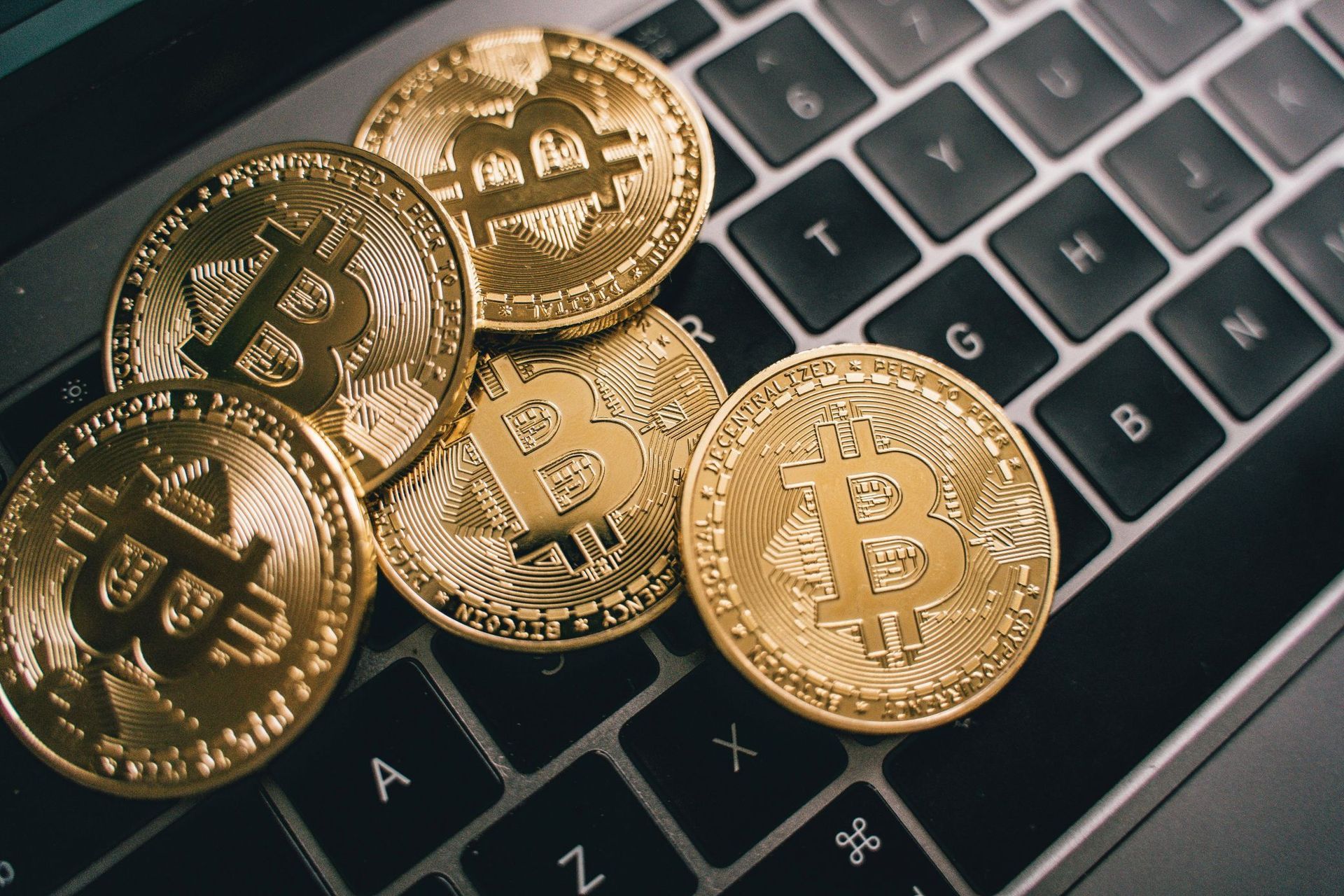
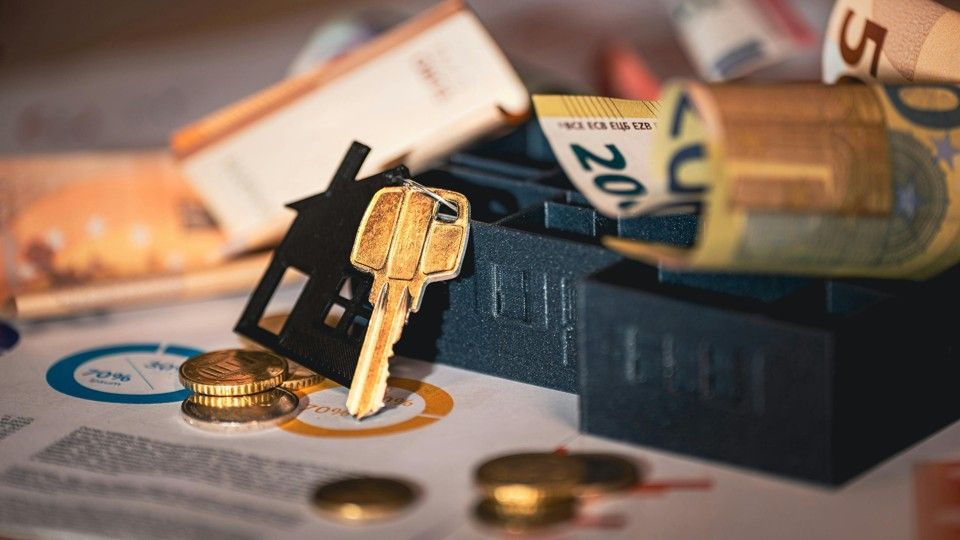

Recent News
